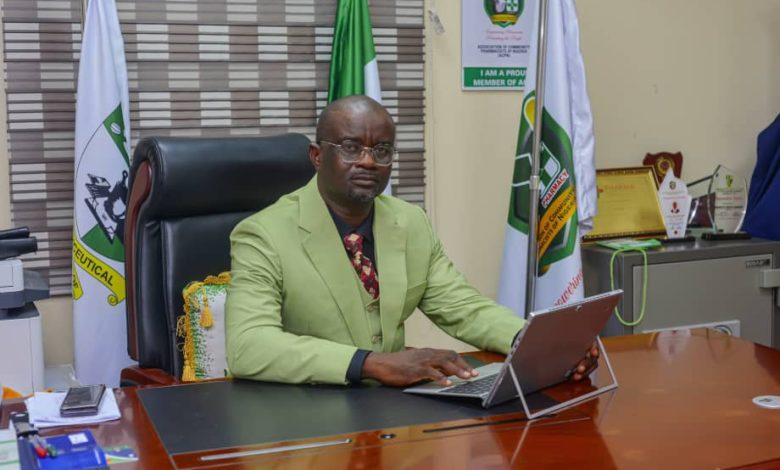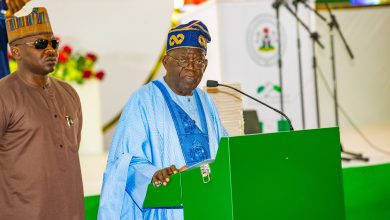ACPN Chair Commends Local Drug Manufacturers, Opposes Pharmacy Council Merger

According to the Association of Community Pharmacists of Nigeria (ACPN), the pharmaceutical industry in Nigeria is bucking the trend with audacious billion-dollar investments in domestic manufacturing and will not tolerate any attempt to weaken its professional standards through foolish regulatory mergers.
The National Chairman, Pharm. Ambrose Ezeh, MAW, DCPharm, and National Secretary, Omokhafe Ashore, FPSN, spoke ahead of the ACPN’s 44th Annual National Conference, which will take place in Awka, Anambra State, from July 22–27. They praised Nigerian pharmaceutical manufacturers for expanding their local production capacity in spite of persistent threats like counterfeit medications and regulatory bottlenecks.
In a pre-conference briefing, Ezeh stated, “Our pharmaceutical industry is on a growth trajectory despite challenges, thanks to visionary investors building Active Pharmaceutical Ingredient (API) plants and modern factories.” “By pushing us toward a $10 billion market size in five years and improving drug security for our people, companies like Fidson Healthcare, Emzor, Codix Healthcare, and Jawa Pharm are changing the narrative.”
He went on to say that local capacity expansion from antiretroviral medications to medical consumables demonstrates that, with intentional government incentives, Nigeria’s pharmaceutical industry can anchor health security and create jobs.
“In order to fulfill WHO Good Manufacturing Practice (GMP) standards, we anticipate that the government will support these investments by providing better access to raw materials, equipment, and an enabling environment. Ezeh emphasized, “That is how we boost GDP growth and reap the benefits of Africa’s Free Trade Area.”
However, before enacting disruptive policies like MEDIPOOL, the Federal Ministry of Health (FMoH) should involve key pharmacy practice stakeholders, the ACPN Chairman cautioned against piecemeal policy initiatives.
“A sound national drug policy must be built on robust stakeholder engagement, not on top-down directives that ignore the realities of practice. We demand that the National Drug Distribution Guidelines be completely implemented and that the Fake Drug Act be reinforced with harsher penalties,” he stated.
Read Also: Keyamo Inaugurates FAAN Board Headed by Ganduje
Ezeh clarified that the ACPN and the whole pharmacy profession oppose any intention to combine the Pharmacy Council of Nigeria (PCN) with other health regulatory organizations under the proposed National Health Facility Regulatory Authority (NHFRA) Bill that is presently before the National Assembly.
Pharmacy practice is governed as a separate profession on a global scale. Every country, including Ghana, South Africa, and Canada, has its own independent pharmacy council to uphold standards, said Omokhafe Ashore, secretary of the ACPN.
He clarified that a cumbersome merger that would weaken standards and make it more difficult to combat counterfeit and subpar medications would undermine the PCN’s experience, national organization, and WHO recognition in addition to NAFDAC’s status as a premier national regulator.
Combining us with unaffiliated health authorities will only result in resource waste, bureaucratic uncertainty, and a decline in professional standards. To safeguard Nigerians’ access to safe medications, the PCN must continue to be independent and dedicated, Ashore stated.
The leadership of the ACPN, in response to media disputes with medical associations, charged that certain factions within the Nigerian Medical Association (NMA) were impeding reforms aimed at modernizing pharmacy practice, such as the PharmD recognition and consultant cadre for pharmacists.
Despite the fact that doctors receive government-funded residencies and pharmacists spend millions for specialized training, these physician groups have continuously prevented pharmacists from advancing fairly. Ezeh urged the government to put an end to this injustice immediately.
In order to ease residual tensions and guarantee equitable representation in leadership positions within Federal Health Institutions (FHIs), he advised President Bola Tinubu to actively involve non-physician health workers, who make up more than 80% of the health workforce.
“The ACPN and affiliated unions under JOHESU will have no choice but to fight using all legal means if the federal government continues to ignore these abuses. “Resistance becomes a duty when injustice becomes law,” he said.





